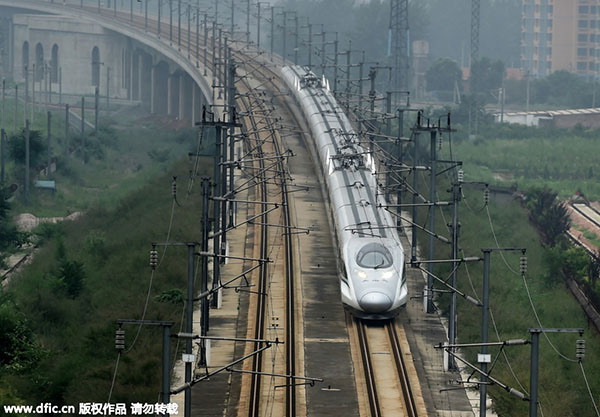 |
|
A train pulls into a station in Luoyang city, Henan province, June 30, 2015. [Photo/IC] |
The social changes that high-speed trains have wrought add up to far more than the hours and minutes saved
When Zhou Fengying took the 320-kilometer train ride from Wuhan to Yichang about 35 years ago, her employer gave her a day off - to sleep off the rigors of what seemed like an impossibly long journey.
Zhou was an employee of the urban construction administration of Yichang at the time and she frequently made such trips to the provincial capital of Hubei on local government business.
The trip lasted between 11 and 12 hours, partly because there was no direct rail link between the two cities, and the trains had to use a track on which their speed was restricted to less than 40 km/h, says Zhou, now 60. In addition, those crammed into the trains had to survive the journey in dowdy green carriages that were grubby and had no air conditioning.
"The trains were absolutely packed. People occupied any space they could find. I used to have people lying under my seat and others beside my feet."
So in the 1990s when long-haul bus services began running, they were like a breath of fresh air, and Zhou seized the opportunity to use them. These buses were more frequent than the trains, they were air-conditioned and suddenly travel time was halved, to less than six hours.
Another couple of decades on, those buses, which had seemed so advanced, themselves took a back seat when Zhou decided to travel to Wuhan to see her son. That day in 2012 she took one of the sparkling new high-speed trains that had been put on that year linking the two cities. The stifling, rackety trip that had once taken as much as 12 hours had now been transformed into a leisurely, smooth jaunt lasting just two hours.
"The train was so clean and quiet," Zhou says. "You could do a lot of different things on the trip, like writing and reading. I guess one reason the train was so clean was that it looked so good that anyone inclined to litter felt too embarrassed to do so."
In this 21st-century travel, too, noisy arguments over seats had given way to peace and civility, Zhou says.
"I guess one reason for that is that since it's just two hours to Wuhan, people were not as hot-headed as they used to be if they had to stand."
